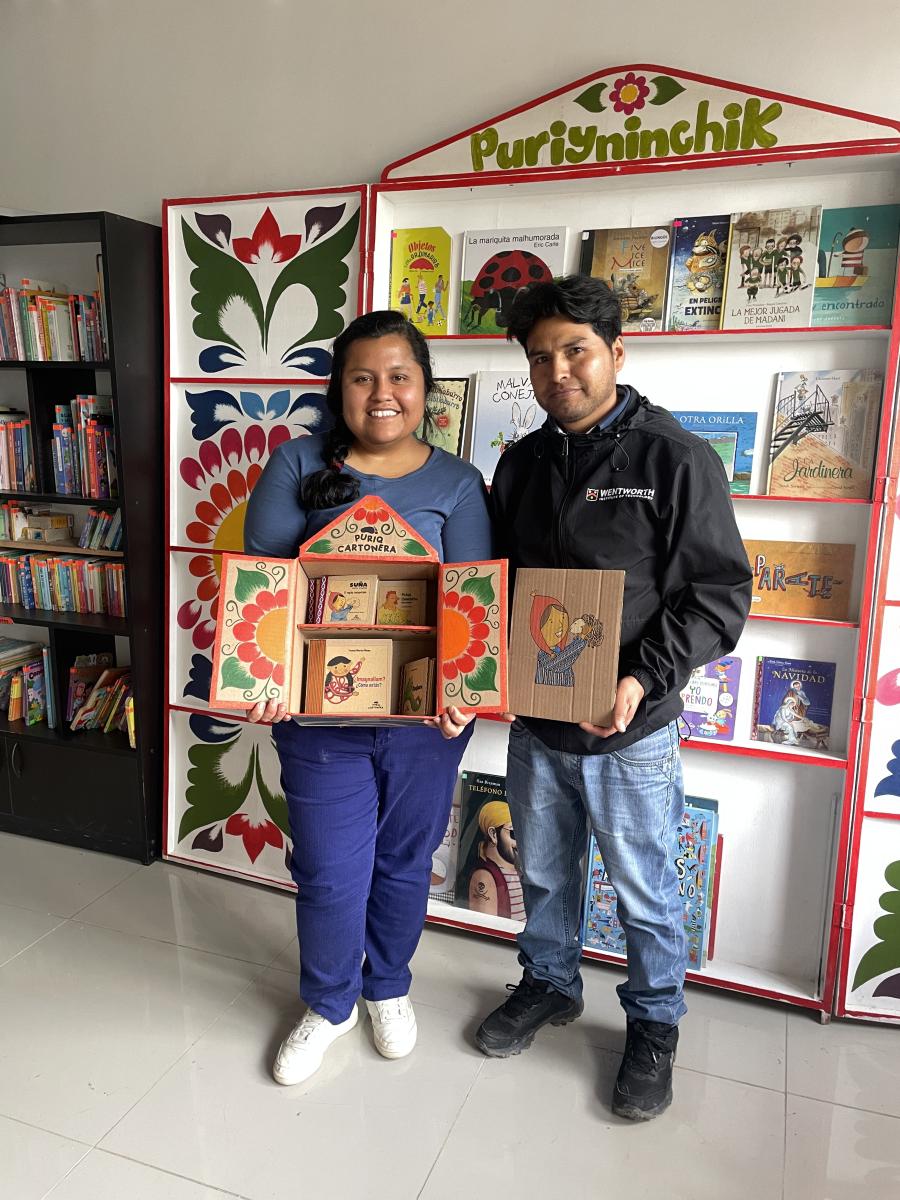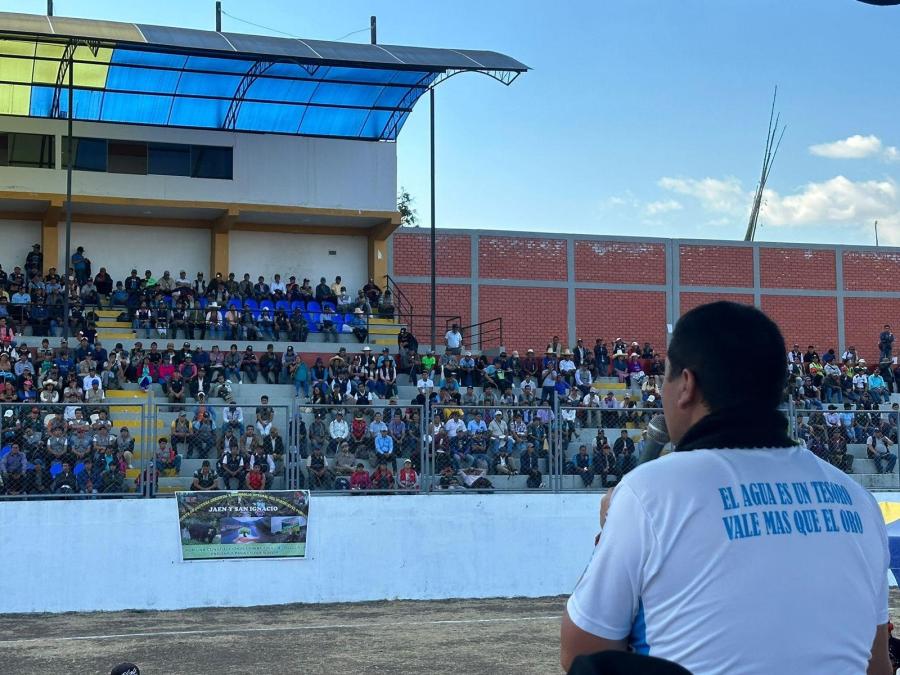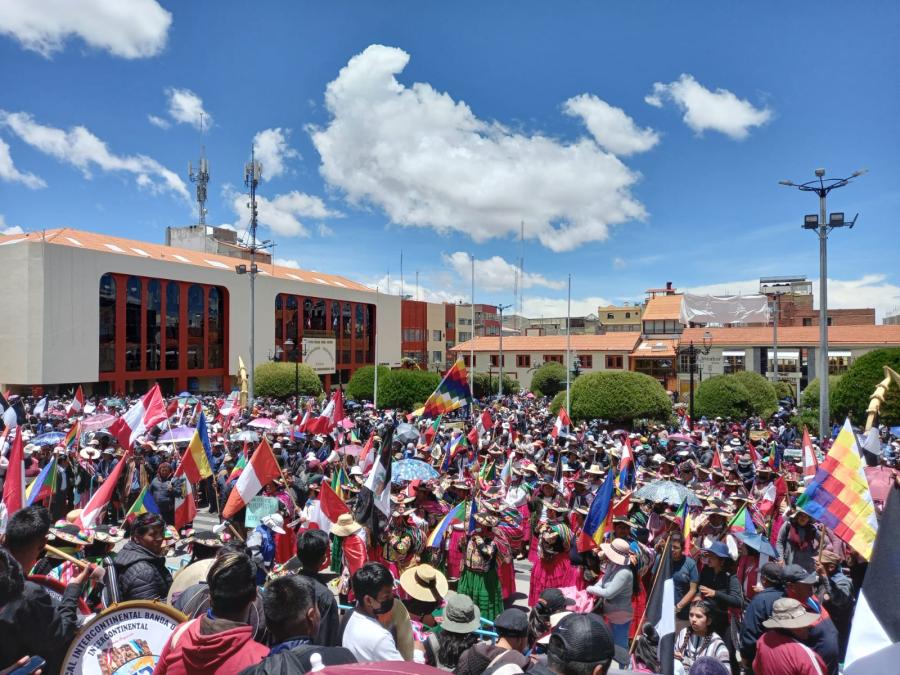
On October 28 - 30, 2013 in Lima, Peru over 200 Indigenous women from all over the globe will gather in preparation for the UN World Conference on Indigenous Peoples in September 2014. The conference is a strategic opportunity that will enable Indigenous youth and women from the seven regions of the world to be informed, reach consensus and establish a common, political statement as a world-level Indigenous women's movement.
Indigenous women from various regions of the world have made great efforts to ensure that, together, their demands are heard. They have had a key role in the negotiation process of the Declaration of the Rights of Indigenous Peoples that was adopted finally in 2007 and also in the establishment of several specific mechanisms in the United Nations framework. The participation of Indigenous women in the Permanent Forum on Indigenous Issues is an example, where their voices have transmitted their recommendations on issues including health, education, food, environment, economic autonomy, political participation, and violence against indigenous women, among others.
The high-level UN plenary meeting in 2014, World Conference on Indigenous Peoples' goal is to exchange views and best practices on the implementation of the rights of Indigenous Peoples, including the fulfilment of the objectives of the United Nations Declaration on the Rights of Indigenous Peoples.
Meanwhile, the United Nations and other international organizations are leading processes of consultation within the scope of the Millennium Development Goals, Post-2015 Development Agenda, and the definition of Sustainable Development Goals. In addition, consultations on Cairo+20, Beijing+20 the end of the Second Decade of Indigenous Peoples are taking place. Today, all these discussions will contribute to the 2015 global agenda and the inclusion of indigenous perspectives, especially indigenous women, is imperative.
The World Conference of Indigenous Women "Progress and Challenges Regarding the Future We Want¨will take place under the coordination of the Continental Network of Indigenous Women of the Americas - ECMIA and the International Indigenous Women's Forum (FIMI). Also involved in this process are the Alianza de Mujeres Indígenas de Centroamérica y México, CHIRAPAQCentre for Indigenous Cultures of Peru, AIPP, the Africa Indigenous Women's Organization, the Indigenous Information Network, the Asian Indigenous Women's Network, and the Indigenous Pacific Women's Network .
This global conference, with global participation, will promote opportunities for dialogue, the generation of consensual proposals and the establishment of political statements based on indigenous women's perspectives at global level. The Conference will also contribute to advocacy at international processes advancing towards 2015 and the World Conference on Indigenous Peoples.
General Objective
The collective generation of key advocacy tools to ensure the validity and recognition of the human rights of indigenous children, youth and women at the different international processes such as Cairo +20, Beijing +20, Post-2015, MDGs, and the World Conference on Indigenous Peoples.
Specific Objectives
- Review the progress made since the adoption of the Cairo Plan of Action, Beijing Platform of Action, and MDGs, and discuss and develop proposals orientated towards the Post-2015 framework.
- Agree on priorities, coordination mechanisms and expected results for the World Conference on Indigenous Peoples to be held in 2014, including progress made during the Second Decade of the World's Indigenous Peoples and the implementation of the Declaration on the Rights of Indigenous Peoples.
- Share experiences, progress and good practices of participation and advocacy in the agenda items.
Expected outcomes
- Common agenda agreed by indigenous women globally, marking a milestone in the indigenous women's movement and advocacy in different scenarios.
- Global political statements at the 2014 conference (Cairo +20, MDG and WCIP) and the Post-2015 Agenda.
- Strategic alliances strengthened among indigenous women's regional networks thus promoting a major dissemination and exchange of information regarding the UN actions on women and indigenous peoples.
- Establishment of a Global Advocacy Committee to advocate at scenarios and Post-2015 events.
Topics
- Assessing the implementation of the United Nations Declaration on the Rights of Indigenous Peoples and the Second Decade of Indigenous Peoples.
- Progress in the implementation and proposals for Cairo+20 and Beijing +20.
- Indigenous women and youth within the Post-2015 agenda.
Register
Indigenous women interested in participating in the World Conference of Indigenous Women "Progress and Challenges Regarding the Future We Want¨ should write an e-mail to: ecmia.ecmia@gmail.com and/or msequeira@iiwf.org
For more information visit mujerindigena.com.
Preliminary Program
Sunday October 27 2013
17.00 - 19.00 | Registration of participants. |
19.00 - 20.00 | Sisterly welcome. |
20.00 - 21.30 | Dinner of integration. |
Monday October 28 2013
7.45 - 8.30 | Registration of participants. |
8.30 - 9.00 | Spiritual Ceremony led by regional spiritual leaders. |
9.00 - 9.15 | Host organizations’ words of welcome:
|
9.15 - 9.45 | Regional representative’s words of welcome.
|
9.45. - 10.00 | Opening words
|
10.00 - 10.15 | Presentation of the program and the of the World Conference of Indigenous Women (WCIW) and Election of the Drafting Committee of the Positioning Document |
10.15 - 10.30 | Snack |
10.30 - 12.40 | Panel 1: From Beijing to Lima. Empowerment of indigenous women of the world, progress and challenges Moderator: Monica Aleman
|
12.40 - 13.00 | Questions, comments and answers |
13.00 - 14.30 | Lunch |
14.30 - 15.30 | Panel 2: World Conference on Indigenous Peoples 2014 (WCIP 2014)
Moderator: Myrna Cunnigham
|
15.30 - 15.45 | Comments, questions and answers |
15.45 - 16.00 | Snack |
16.00 – 17.45 | Working Groups WCIW 2014: Group 1- Territory of the indigenous peoples, resources of the earth, oceans and waters; Right to free, prior and informed consent. Facilitators: UNFPII and GCG. Group 2- Implementation of the rights of indigenous peoples and actions of States and the United Nations system. Facilitators: UNFPII and GCG. Group 3 - Indigenous women's participation in the negotiation phase to the States and the United Nations. Facilitators: UNFPII and GCG. Group 4- Improving communication and information on the World Conference 2014: How can we share our messages? Facilitators: UNFPII and GCG. Group 5- Indigenous women political participation and demographic dynamics in Latin American countries. Inspirational experiences. Facilitators: UN Women and UNDP Group 6 – Learning from our Wise Women Facilitators: Elder and Young Women |
17.45 – 18.45 | Plenary Meeting Moderator: Will be defined |
19.30 – 20.30 | Cultural Night: Indigenous Dances and Music, sponsored by the Peruvian Culture Ministry. |
21.00 – 22.00 | Dinner |
Day: Tuesday October 29, 2013
8.00 - 8.30 | Spiritual Ceremony led by regional spiritual leaders. |
8.30 - 9.20 | Panel 3: Cairo +20. Commitments, progress, and challenges. Moderator: Tarcila Rivera Zea
|
9.20 - 9. 45 | Questions, comments and answers. |
9.45 - 10.00 | Snack |
10.00 - 11.00 | Panel 4: Beijing +20. Commitments, challenges and progress Moderator: Vicky Tauli.
|
11.00 - 13.00 |
Working Groups of Cairo +20 and Beijing +20. Group 1- Sexual and reproductive health
Facilitator: Asia Group 2 - Safe motherhood and intercultural health.
Facilitator: Russia and Pacific. Group 3 - Visibility and statistics
Facilitator: LAC Group 4 - Sexual and reproductive rights and culture:
Facilitator: Africa Group 5 - Political participation, empowerment and incidence on public policies.
Facilitator: FIMI Group 6 - The eradication of violence against women.
Facilitator: Arctic and North
|
13.00 - 14.30 | Lunch |
14.30 – 15.20 |
Panel 5. Millenium Development Goals and the Post 2015 Development Agenda. Moderator: Representative of Pacific |
|
|
15.20 – 15.30 | Questions, comments and answers |
15.30 - 15.45 | Snack |
15.45 – 17.30 | Working Groups of the MDG and Post 2015 Development Agenda: Group 1- Less than 1000 days to end with the MDGS. Lessons learned by indigenous women. Facilitator: FIMI Group 2 - Climate change negotiations and Sustainable Development Goals. What are our main concerns? Facilitator: Vicky Tauli Corpuz. Group 3 - Biodiversity, traditional knowledge systems, sustainable development and self-determined nutrition, medicine, biodiversity, and intellectual property. Facilitator: Lucy Mulenkei and Florina Lopez. Group 4 - The Guadalajara consultation. Major concerns of indigenous peoples. How to include them in the development of the agenda post 2015. Facilitator: Youth Network. Group 5 - Inequality, government and gender equality. Major concerns in relation to the Post 2015 Agenda. Facilitator: UNFPII and UN Women. Group 6 - Human rights and business. Report of Medellin and its follow-up. Facilitator: CAOI, the Government of Colombia and Pavel Sulyandziga |
17.30 - 19.30 | Plenary meeting
|
19.30 - 20.30 | Dinner |
20.30 - 21.30 | Intercultural interaction between the representatives of the different regions. |
Day: Wednesday, 30 October 2013
7.45 - 8.15 | Spiritual Ceremony |
8.15 - 10.15 | Strategic Meetings Workshops Group 1- Indigenous peoples’ self-determinated development.
Facilitator: ¿? Group 2- Food security and sovereignty, and the role of indigenous women .
Facilitator: ¿? Group 3 – Investing in Indigenous Women Facilitator: Ford Foundation, Christensen Fund, UN Women, Global Fund for Women.
Group 4- How to use the instruments of the United Nations to protect the rights of indigenous women. Facilitator: Lisa Davis and Rose Cunningham (MADRE) Group 5 - ICTs and indigenous women and girls. Facilitator: ¿? Group 6 - Strengthening the global movement of indigenous women. Facilitator: Regional Networks |
10.15 - 10.30 | Snack |
10.30 - 11.30 | Plenary |
11.30 - 14.00 | Public Act
|
14.00 - 15.30 | Lunch |
15.00 - 20.00 | Free Time |
20.00 - 22.00 | Closure:
|
22.00 – 00.00 | Closing Activity |



